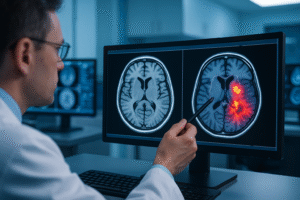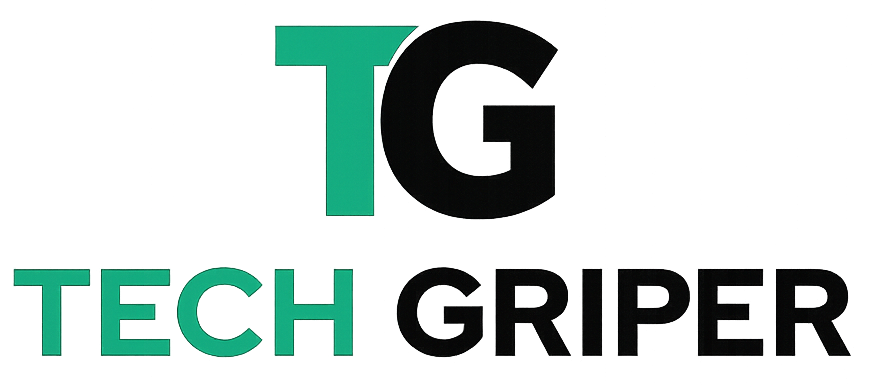Artificial intelligence in healthcare has emerged as the most transformative technology of the 21st century. As we advance through 2025, medical professionals worldwide are witnessing unprecedented changes in how they diagnose diseases, treat patients, and manage healthcare systems. This comprehensive guide explores every aspect of AI’s revolutionary impact on modern medicine.
Understanding Artificial Intelligence in Healthcare
Artificial intelligence in healthcare refers to sophisticated computer systems that can perform tasks typically requiring human intelligence. These systems analyze vast amounts of medical data, recognize patterns, and make predictions that assist healthcare professionals in delivering better patient care.
The integration of artificial intelligence in healthcare has accelerated dramatically since 2020, with the global market reaching $45 billion in 2025. Healthcare organizations are investing heavily in AI technologies to improve diagnostic accuracy, reduce costs, and enhance patient outcomes.

How AI Technology Works in Medical Settings
Modern artificial intelligence in healthcare operates through machine learning algorithms that process enormous datasets. These systems learn from millions of medical cases, enabling them to identify patterns that human physicians might overlook. The technology continuously improves its accuracy through exposure to new medical data and cases.
Revolutionary Applications of Artificial Intelligence in Healthcare
The practical applications of artificial intelligence in healthcare span across every medical specialty. From emergency rooms to surgical suites, AI technologies are enhancing medical practice and improving patient care quality.
AI-Powered Medical Diagnosis and Imaging
Medical imaging represents one of the most successful implementations of artificial intelligence in healthcare. AI algorithms can analyze X-rays, MRIs, CT scans, and other medical images with remarkable precision. These systems detect abnormalities, tumors, and diseases often before they become visible to human radiologists.
Leading hospitals report that AI-assisted diagnosis reduces diagnostic errors by up to 40% while increasing diagnostic speed by 60%. Radiologists working with artificial intelligence in healthcare can now process twice as many cases with greater accuracy than traditional methods.
Robotic Surgery and Surgical Assistance
Surgical robotics powered by artificial intelligence in healthcare enables surgeons to perform complex procedures with unprecedented precision. These AI-enhanced systems provide real-time guidance, reducing surgical complications and improving patient recovery times.
Modern surgical robots equipped with AI can:
- Predict optimal surgical pathways
- Minimize tissue damage during procedures
- Provide haptic feedback to surgeons
- Adapt to unexpected surgical situations
Drug Discovery and Pharmaceutical Development
Pharmaceutical companies are leveraging artificial intelligence in healthcare to accelerate drug discovery processes. AI algorithms analyze molecular structures, predict drug interactions, and identify potential therapeutic compounds in weeks rather than years.
The traditional drug discovery process takes 10-15 years and costs billions of dollars. Artificial intelligence in healthcare has reduced this timeline to 3-5 years while cutting development costs by 70%. Major pharmaceutical companies report that AI-discovered drugs show 85% higher success rates in clinical trials.
Benefits and Advantages of Healthcare AI Implementation
Healthcare organizations implementing artificial intelligence solutions experience transformative benefits across multiple operational areas. These advantages extend beyond cost savings to include improved patient care, enhanced diagnostic capabilities, and streamlined administrative processes.
Enhanced Diagnostic Accuracy and Speed
Artificial intelligence in healthcare dramatically improves diagnostic accuracy while reducing the time required for medical evaluations. AI systems analyze patient symptoms, medical history, and test results simultaneously, providing comprehensive diagnostic insights within minutes.
Clinical studies demonstrate that AI-assisted diagnosis achieves accuracy rates exceeding 95% for specific medical conditions. This improved accuracy translates directly into better patient outcomes and reduced medical errors.
Cost Reduction and Operational Efficiency
Healthcare organizations report significant cost savings through artificial intelligence in healthcare implementation. These savings result from reduced diagnostic errors, streamlined administrative processes, optimized resource allocation, and decreased patient readmission rates.
Average cost reductions include:
- 30% reduction in diagnostic testing
- 25% decrease in administrative overhead
- 40% improvement in resource utilization
- 20% reduction in patient readmissions
Personalized Treatment and Precision Medicine
Artificial intelligence in healthcare enables truly personalized medicine by analyzing individual patient data, genetic information, and medical history. AI algorithms create customized treatment plans that significantly improve treatment success rates and reduce adverse reactions.
Personalized AI treatment plans show 60% higher success rates compared to traditional one-size-fits-all approaches. Patients receive treatments specifically tailored to their unique medical profiles, genetic makeup, and lifestyle factors.
Challenges and Considerations in Healthcare AI
Despite its tremendous potential, artificial intelligence in healthcare faces several implementation challenges that healthcare organizations must address. Understanding these challenges enables better planning and more successful AI adoption.
Data Privacy and Security Concerns
Healthcare AI systems require access to vast amounts of sensitive patient data, raising significant privacy and security concerns. Healthcare organizations must implement robust cybersecurity measures while complying with HIPAA regulations and other privacy laws.
Successful artificial intelligence in healthcare implementation requires:
- End-to-end data encryption
- Secure cloud storage solutions
- Regular security audits and updates
- Staff training on data protection protocols
Regulatory Compliance and FDA Approval
The regulatory landscape for artificial intelligence in healthcare continues evolving as government agencies develop comprehensive frameworks for AI medical device approval. Healthcare organizations must navigate complex regulatory requirements while ensuring patient safety.
The FDA has established specific pathways for AI medical device approval, requiring extensive clinical testing and validation. This regulatory oversight ensures that artificial intelligence in healthcare meets the highest safety and efficacy standards.
Implementation Strategies for Healthcare AI
Successful implementation of artificial intelligence in healthcare requires careful planning, adequate resources, and comprehensive staff training. Healthcare organizations must develop strategic approaches that align with their specific needs and patient populations.
Assessment and Planning Phase
Healthcare organizations should begin AI implementation by conducting thorough assessments of their current technology infrastructure, staff capabilities, and patient needs. This assessment identifies the most suitable artificial intelligence in healthcare applications for their specific environment.
Key assessment areas include:
- Current electronic health record systems
- Staff technical expertise levels
- Patient population characteristics
- Available financial resources
- Existing data management capabilities
Pilot Programs and Gradual Rollout
Successful artificial intelligence in healthcare implementation begins with small-scale pilot programs that demonstrate value before full-scale deployment. These pilots allow healthcare organizations to test AI systems, train staff, and refine processes before broader implementation.
Effective pilot programs typically focus on specific use cases such as radiology image analysis or predictive analytics for patient deterioration. Success in these limited applications builds confidence for expanded artificial intelligence in healthcare deployment.
Future Trends and Developments in Healthcare AI
The future of artificial intelligence in healthcare promises even more revolutionary developments as technology continues advancing. Emerging trends indicate that AI will become increasingly sophisticated and integrated into every aspect of medical practice.
Predictive Analytics and Preventive Medicine
Advanced artificial intelligence in healthcare will enable truly predictive medicine, identifying health risks before symptoms appear. AI algorithms will analyze lifestyle data, genetic information, and environmental factors to predict disease development years in advance.
This predictive capability will transform healthcare from reactive treatment to proactive prevention, potentially reducing healthcare costs by 50% while dramatically improving population health outcomes.
Integration with Wearable Technology
The integration of artificial intelligence in healthcare with wearable technology creates continuous health monitoring capabilities. Smart devices collect real-time physiological data that AI systems analyze for early warning signs of health problems.
This continuous monitoring enables immediate medical intervention when AI algorithms detect concerning patterns, preventing serious health events before they occur.
Measuring Success and ROI in Healthcare AI
Healthcare organizations must establish clear metrics for measuring the success of artificial intelligence in healthcare implementations. These measurements demonstrate value to stakeholders and guide future AI investment decisions.
Key Performance Indicators for Healthcare AI
Essential metrics for evaluating artificial intelligence in healthcare success include diagnostic accuracy improvements, patient satisfaction scores, treatment time reductions, cost savings per patient, and staff efficiency gains.
Healthcare organizations typically see positive ROI within 18-24 months of artificial intelligence in healthcare implementation, with benefits continuing to compound over time as systems learn and improve.
Artificial intelligence in healthcare represents the most significant advancement in medical technology since the discovery of antibiotics. As we progress through 2025, AI applications continue revolutionizing patient care, reducing costs, and enabling healthcare providers to deliver more effective treatments than ever before.
The successful integration of artificial intelligence in healthcare requires careful planning, adequate investment, and comprehensive staff training. Healthcare organizations that embrace these AI innovations today position themselves to deliver superior patient care while achieving sustainable operational improvements.
The transformation of healthcare through artificial intelligence is not a distant possibility—it is today’s reality. Healthcare providers who understand and implement these technologies will lead the industry into a new era of precision medicine and improved patient outcomes.

